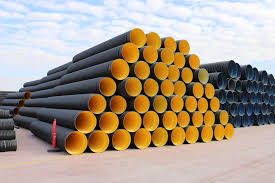Jul . 29, 2024 22:36 Back to list
Exploring the Industrial Applications and Benefits of HDPE Pipe in Various Manufacturing Sectors
The Versatile Applications of HDPE Pipe in Factories
High-Density Polyethylene (HDPE) pipes have revolutionized various industrial sectors, particularly in factory settings. Known for their strength, durability, and flexibility, HDPE pipes are increasingly becoming the preferred choice for many applications. This article explores the versatile uses of HDPE pipes in factories, highlighting their benefits and adaptability.
1. Chemical Processing
One of the most significant applications of HDPE pipes in factories is in the chemical processing industry. They are highly resistant to a wide range of chemicals, which makes them ideal for transporting corrosive substances. Many factories rely on HDPE pipes for both the storage and transportation of chemicals, ensuring safety and minimizing the risk of leaks or spills. Their excellent chemical resistance properties allow them to maintain integrity over time, contributing to a safer working environment.
2. Water Supply and Waste Management
HDPE pipes are extensively used for water supply systems in factories. Their lightweight nature makes them easy to handle and install, reducing labor costs and installation time. Beyond drinking water, these pipes are also used for irrigation systems, making them essential for any factory that involves agricultural processing. Furthermore, HDPE pipes are essential in waste management systems, as they can effectively transport wastewater and other effluents without risk of degradation.
3. HVAC and Cooling Systems
In factories that require climate control, HDPE pipes play a vital role in heating, ventilation, and air conditioning (HVAC) systems. They are utilized to transport hot and cold fluids, effectively supporting temperature regulation throughout the facility. The ability of HDPE to resist thermal changes ensures that the fluids maintain their intended temperatures without compromising the pipe's structural integrity.
hdpe pipe use factory

4. Electrical Conduits
HDPE pipes are also used as conduits for electrical wiring in factories. Their non-conductive nature makes them a safe option for protecting electrical cables from environmental hazards and mechanical damage. As factories expand or undergo modifications, HDPE conduits provide a flexible solution that can adapt to changing electrical requirements.
5
. Industrial ApplicationsIn various industrial settings, HDPE pipes are used for transporting bulk materials, such as slurries or powders. Their high tensile strength allows them to withstand the pressure and wear associated with heavy-duty applications. Additionally, the smooth interior surface of HDPE pipes minimizes friction, leading to efficient material flow and reduced energy consumption.
6. Environmental Benefits
Beyond their practical applications, HDPE pipes also contribute positively to environmental sustainability. These pipes are made from recycled materials and are themselves recyclable, reducing waste and promoting circular economy practices. Additionally, because HDPE pipes often require less energy to produce and install compared to traditional materials, they align with modern factories’ goals to minimize their carbon footprint.
Conclusion
The versatility of HDPE pipes in factory settings cannot be overstated. From chemical processing to waste management and HVAC systems, their wide-ranging applications make them indispensable in various industrial operations. As factories continue to seek more efficient, safe, and sustainable solutions, the use of HDPE pipes will likely continue to grow. As technology advances, we can expect even more innovative applications of HDPE in manufacturing, solidifying their role as a cornerstone of modern industrial infrastructure.
-
High-Quality PVC Borehole Pipes Durable & Versatile Pipe Solutions
NewsJul.08,2025
-
High-Quality PVC Perforated Pipes for Efficient Drainage Leading Manufacturers & Factories
NewsJul.08,2025
-
High-Quality PVC Borehole Pipes Durable Pipe Solutions by Leading Manufacturer
NewsJul.08,2025
-
High-Quality PVC Borehole Pipes Reliable PVC Pipe Manufacturer Solutions
NewsJul.07,2025
-
High-Quality UPVC Drain Pipes Durable HDPE & Drain Pipe Solutions
NewsJul.07,2025
-
High-Quality Conduit Pipes & HDPE Conduit Fittings Manufacturer Reliable Factory Supply
NewsJul.06,2025

